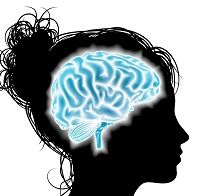Exercise Helps in Pediatric MS
Children with multiple sclerosis (MS) with higher levels of physical activity have lower relapse rates, are less depressed, and suffer less fatigue, according to a study published on August 12, 2015 in Neurology.

Children with multiple sclerosis (MS) with higher levels of physical activity have lower relapse rates, are less depressed, and suffer less fatigue, according to a study published on August 12, 2015 in Neurology. Stephanie Grover, MSc, and colleagues completed a cross-sectional study of patients at the Division of Neurology, Department of Pediatrics, Hospital for Sick Children at the University of Toronto.
The researchers included 110 patients, 79 of whom were diagnosed with monophasic acquired demyelinating syndrome (mono-ADS), and 31 with MS. They found that children with mono-ADS tend to be more physically active than those with MS, but those with MS who reported higher levels of strenuous physical activity enjoyed a better quality of life.
Past studies have shown that “a complex relationship likely exists between lifestyle and multifactorial diseases like MS.” In this study, researchers looked at physical activity, fatigue, depression, relapse rate, and MRI metrics in children who had been diagnosed with MS or mono-ADS.
The patients with MS who reported lower levels of physical activity also reported higher levels of fatigue. In addition, lower levels of physical activity correlated with high levels of depression, leading the researchers to question whether more physical activity could lead to less depression over time.
MRI showed another association: strenuous physical activity and lower T2 lesions, as well as a lower annualized relapse rate (ARR). The researchers conducting this study were unable to determine whether or not there was a causal relationship between physical activity and lower ARR because it was a cross-sectional study, however, “others have shown associations between preservation of gray matter volumes and white matter integrity in patients with MS with high aerobic fitness.”
Because this study took place at a specialized clinic, the researchers say there is a small possibility of patient selection bias. Other limitations included the fact that there were not MRI scans available for volumetric analysis for all of the children, the use of a questionnaire that required 7-day recall to determine levels of physical activity, and by the cross-sectional nature of the study.
Further study is necessary to explore the connections between fatigue, ARR, lesion volume, and physical activity in patients with MS. There is a strong possibility that more physical activity could result in a better quality of life for children with MS by reducing depression and fatigue, and perhaps even slowing the rate of disease progression